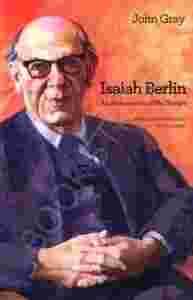|
Isaiah Berlin (1[zasłonięte]909-19) was the greatest
intellectual historian of the twentieth century. But his
work also made an original and important contribution to
moral and political philosophy and to liberal
theory.
In 1921, at the age of eleven, Isaiah Berlin
arrived in England from Riga, Latvia. By the time he was
thirty he was at the heart of British intellectual life.
He has remained its commanding presence ever since, and
few would dispute that he was one of Britain's greatest
thinkers. His reputation extends worldwide--as a great
conversationalist, intellectual historian, and man of
letters. He has been called the century's most inspired
reader.
Yet Berlin's contributions to thought--in
particular to moral and political philosophy, and to
liberal theory--are little understood, and surprisingly
neglected by the academic world. In this book, they are
shown to be animated by a single, powerful, subversive
idea: value-pluralism which affirms the reality
of a deep conflict between ultimate human values that
reason cannot resolve. Though bracingly clear-headed,
humane and realist, Berlin's value-pluralism runs
against the dominant Western traditions, secular and
religious, which avow an ultimate harmony of values. It
supports a highly distinctive restatement of liberalism
in Berlin's work--an agnostic liberalism, which is
founded not on rational choice but on the radical
choices we make when faced with intractable dilemmas. It
is this new statement of liberalism, the central subject
of John Gray's lively and lucid book, which gives the
liberal intellectual tradition a new lease on life, a
new source of life, and which comprises Berlin's central
and enduring legacy.
In a new introduction, Gray
argues that, in a world in which human freedom has
spread more slowly than democracy, Berlin's account of
liberty and basic decency is more instructive and useful
than ever.
|
|

